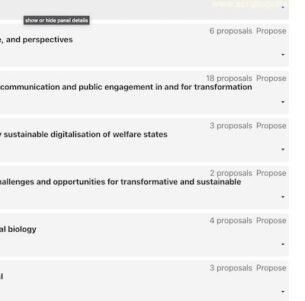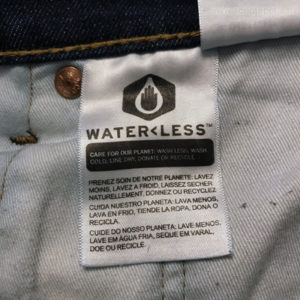Distribution
It’s an old story. Morality is about more than the separation of right and wrong, fair and unfair. It also involves the distribution of tasks and responsibilities. It’s not so much a matter of pointing out the guilty who have done wrong (that’s the business of law), but of answering the question, “Now who does what?”
When it comes to climate change and environmental protection, many people think that the answer to the first part of the question is quite simple: everyone must change their practices, each person must do their best to take care of the world. This is so obvious that claiming for such action has become a marketing argument. Our car does not emit fine particles. Our pastry does not contribute to the deforestation of the Amazon.
This is the kind of promotion I thought I was dealing with when I discovered the label on these brand new jeans: “WATER < LESS". Well, this great brand shows that it is making efforts, which is not luxury if you think about the pollution generated by the textile industry and the extent of its water consumption. But, as in an insurance contract, I had to read the tiny lettering to understand that this was not so much a promotion as an injunction. "water less" is actually addressed to me. Be responsible, wash your jeans less, don't tumble dry them, don't throw them away. Business as usual, then. For decades, it has been explained to workers that they ought to be careful of machines that could hurt them, to pedestrians that they must watch out for cars on the streets. It is now up to consumers to do their part. This is an admission of powerlessness on the part of the manufacturer, who, however, omits to mention another possible action, which would render all those listed on the imposing label useless: do not buy.
Translated with www.DeepL.com/Translator (free version)







